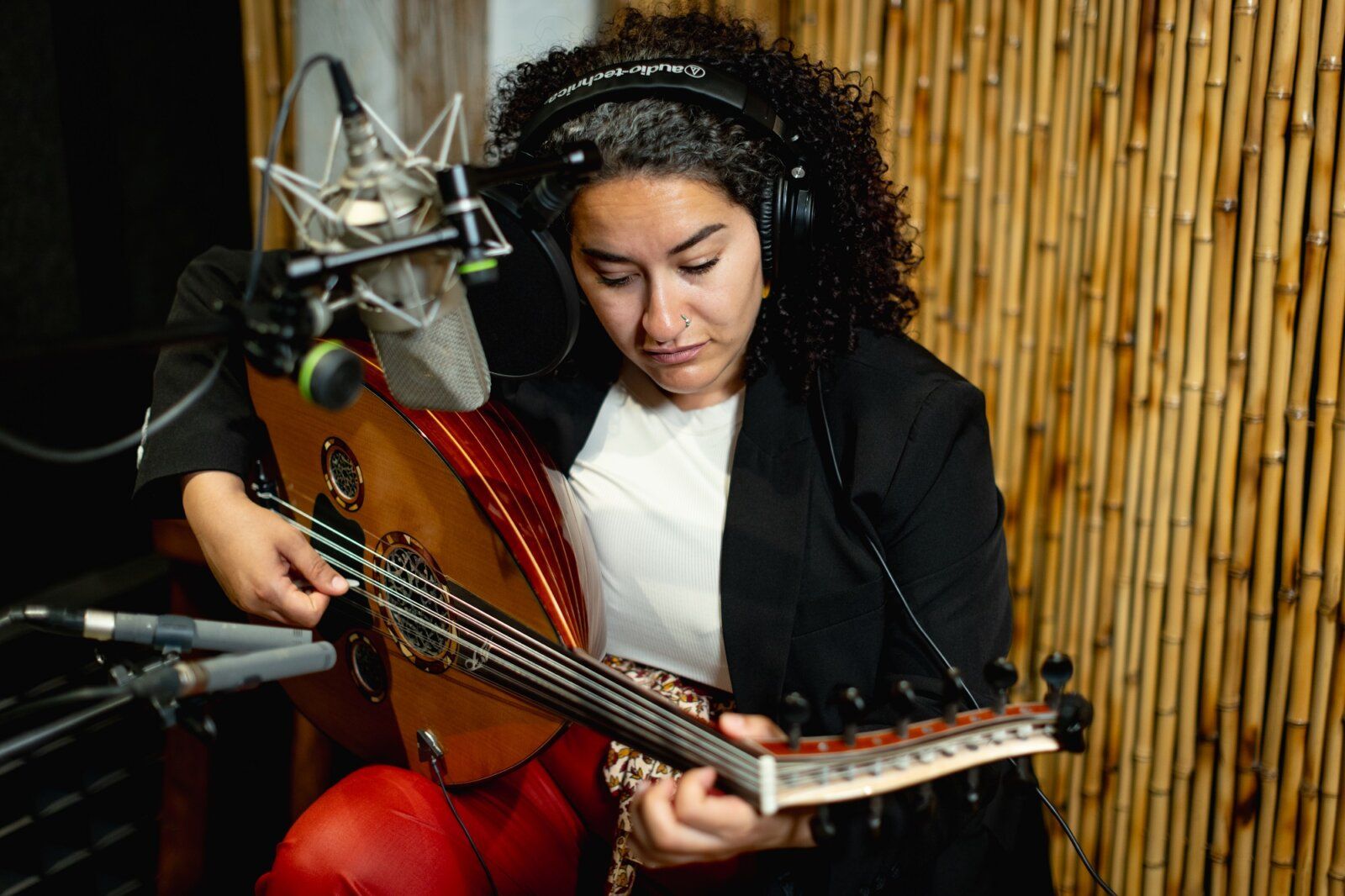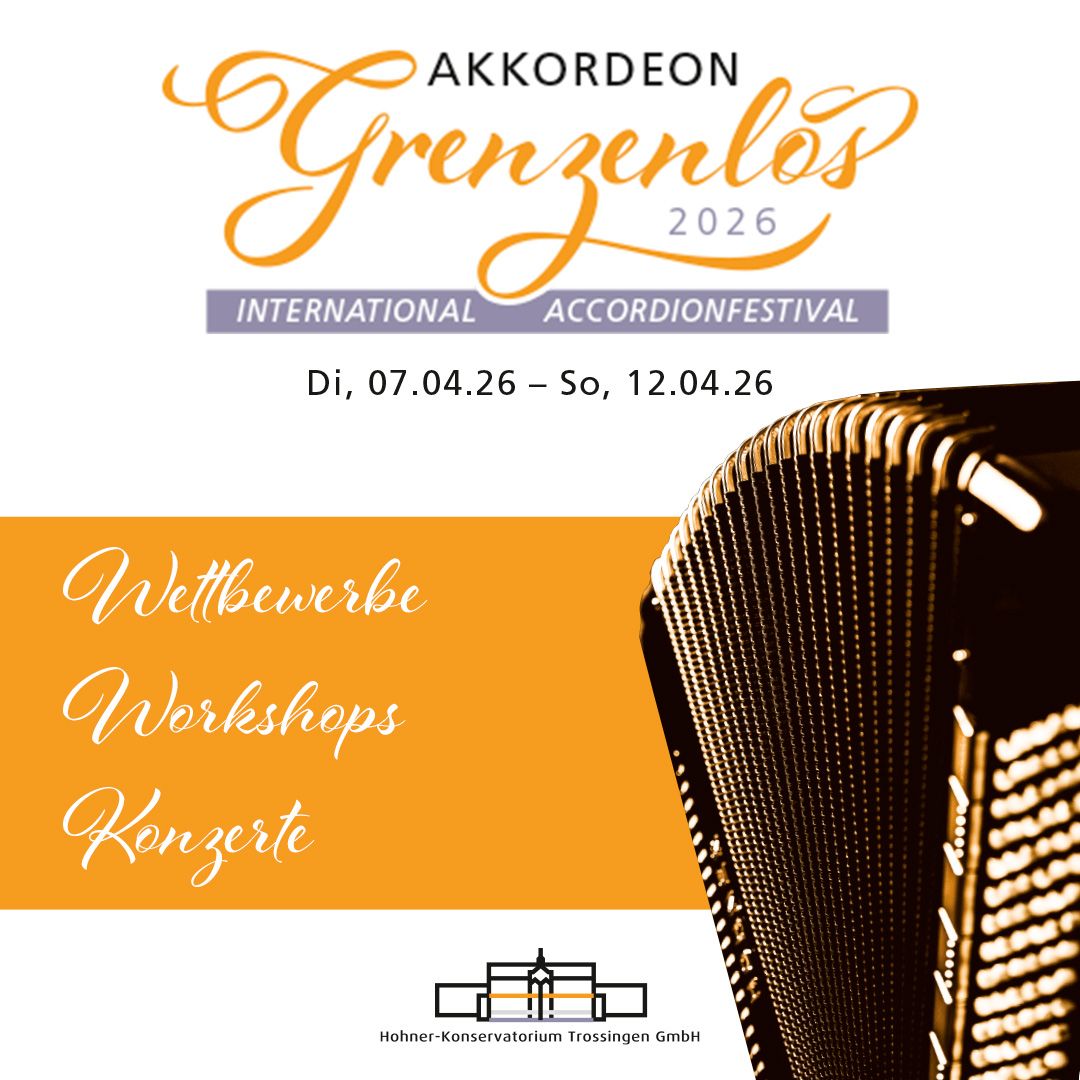Growing up in a small two-room house in eastern Amman, Jordan, my childhood was steeped in the stories of resilience and displacement. As the youngest of five children born to Palestinian parents, I was surrounded by the echoes of a past my family carried with them – stories that shaped my identity and, eventually, my music. The small garden outside our home, with its sprawling berry tree where my sister often perched to read, remains a symbol of those formative years. Yet, my family’s story is one of both heartbreak and hope.
Text: Nemat Battah
Editor’s note: folker magazine asked two artists from Palestinian and Jewish backgrounds to describe their respective experiences of past and current developments in the Middle East. And we wanted to know what role they think culture can play in coming to terms with the past and achieving a just peace together. You can read Isabel Frey’s contribution here (in German).
My father, born in Ein Karem, a village in Jerusalem, was just five and a half years old when the 1948 Nakba* began. His life changed forever when his village elders urged women and children to evacuate temporarily in the wake of the Deir Yassin massacre, a horrific event committed by Zionist militias. They never returned home. My mother’s story echoes similar loss; born in Deir al-Balah, Gaza, her family originally hailed from Al-Sawafir al-Sharqiyya, a village that was destroyed during the same tumultuous period. These histories of forced expulsion, dispossession, and exile shaped their lives – and ours as their children.
Decades later, my siblings and I grappled with the aftermath of unresolved transgenerational trauma. But for me, music became my refuge. From the age of eight, I found solace in singing—in the school choir, at private music centres, or wherever I could. Unknowingly, I was using music as a safe escape, a way to process and transcend the weight of my family’s history. Years of therapy eventually led me to a realisation: I wanted to navigate my own transgenerational trauma through composing and performing music. This journey culminated in 2021 with my master’s project, Something Like Home .
This endeavor became a deeply personal exploration of love, compassion, and shared memory within my family. Drawing on stories and impressions from my parents’ childhoods, my siblings, and mine, I composed music inspired by their experiences.
My musical journey began at the age of eight and has since evolved into a profound passion for performing traditional Arabic music—a passion deeply rooted in my cultural heritage. My compositions for Something Like Home draw from the Arabic Maqam system and its rhythmic patterns, which served as a foundation for collaboration with the musicians who joined me. At the same time, my musical path has embraced diversity. Over the years, I have arranged and composed for global music ensembles and transcultural groups, blending the essence of Arabic music with other traditions to create something truly unique.
“I have found my voice – not just as a musician, but as a storyteller, a daughter, and a sibling.”
Each composition of Something Like Home reflects a story, and I want to share a few of them here.
“Impressions Of Deir al-Balah” captures a conversation between my mother and me about displacement and the hope of returning home. In this song my mother returns to her childhood memories on the shores of the Mediterranean Sea in Gaza. As an adult, my mother then speaks to the sea, saying these lines:
Sail on, boat of travels,
The soul is weary of migration –
Leave me behind on the windy shores,
For its breath to lift me away,
Leave me on the doorsteps of our house,
Plant me in its earth.
The song was rearranged and recorded with my trio Wishamalii for our first album Al-Bahr which was released by the German record label Nordic Notes.
“A Prayer to Randa” honours the memory of Randa, the nanny who saved my sister’s life during the war in Lebanon but tragically lost her own in the Sabra and Shatila massacre. In this piece, my sister reflects on her deep bond with Randa, the pain of discovering that Randa was killed just weeks after their escape from Lebanon, and a recurring dream in which Randa appears and speaks to her. This song is inspired by that poignant dream, honouring Randa’s memory and the profound impact she had on our lives. The Lyrics of the song were written in Arabic by Raad Al Zaben and translated to English by Rana Battah & ALHS.
She came at night to return the toy.
She told me she saved it for me in the pocket at her chest.
She sat at the window and smiled for me: how vast this window is – you have grown up –
Yesterday we were children and tonight we returned.
Tonight, our laughs will make us forget the long journey.
Randa came and brought the past with her,
The house gate, the places she took care of me,
The olive oil and the thyme.
“Where did you come from?” I asked
“From a high place above” she answered
“Where there is a big garden full of children,
Where we can stay up, play past the nights together.”
The children called upon her, and Randa left me to my journey,
Left the toy with me, left me to my window, vast as she said,
Where I keep waiting for her,
For Randa to come back to me.
“From Ain Karem To Amman” recounts my father’s displacement as a child and his cherished memories of farm visits with his grandfather. My dad wrote this story for us to read and would often tell it to us as well. He vividly describes their journey, focusing solely on the events that unfolded along the way, without delving into his own emotions. However, there is one line that deeply touched me – when he wrote that he had forgotten his favourite toy, the spinning head, at home. That simple detail hit me hard.
The tune is performed instrumentally, but before it begins, I recite this poem which was also written in Arabic by Raad Al Zaben and translated to English by Rana Battah & ALHS.
Emran, this is Ain Karem – the earth rich with the eyes of water –,
And this is our last home.
Earth is what we have, and we have much more of it.
Our sons – one that does not know death or the last earthen rest,
And his brother is one who tills the earth, hewing the hillside to plant silk.
Both are childlike in their love, yet, are the vastness of a homeland.
A homeland ascertained through doubt – in it no free person and no prisoner …
And you my grandson, your years race ahead of you in the paths of life,
No toys in your grandfather’s house that await your return,
No day that returns if its light melts down and the sun sets –
Children of war live day by day, the light of their day melts down.
Tread the years of your life, and should the duress come, confront:
Emran is my name, and after my life, I will return to a second life,
The shades of shrapnel in Ain Karem still following me in my path …
Through Something Like Home, I’ve found my voice – not just as a musician, but as a storyteller, a daughter, and a sibling. Music has been my bridge to understanding, healing, and reconnecting with my family’s shared history. It is my way of saying, “Though we may not have our homeland, we have each other. And through music, we can create something like home.” Music has helped me navigate the complexities of identity, offering a path to healing and a means to celebrate the resilience of my family’s spirit. Every melody I compose carries the echoes of our collective experiences, weaving together stories of loss, love, and hope.
* Arabic for “catastrophe” in remembrance of the flight and expulsion from the former British Mandate of Palestine in 1948/1949.
About the author: Nemat Battah is a Palestinian-Jordanian singer, oud player, composer, and educator. She is currently based in Helsinki, Finland, where she is a lecturer and vice head at Sibelius Academy’s Global Music Department.
Further weblinks:
www.nordicnotes.bandcamp.com/album/wishamalii-al-bahr
www.researchcatalogue.net/profile/show-exposition?exposition=1178357






0 Kommentare